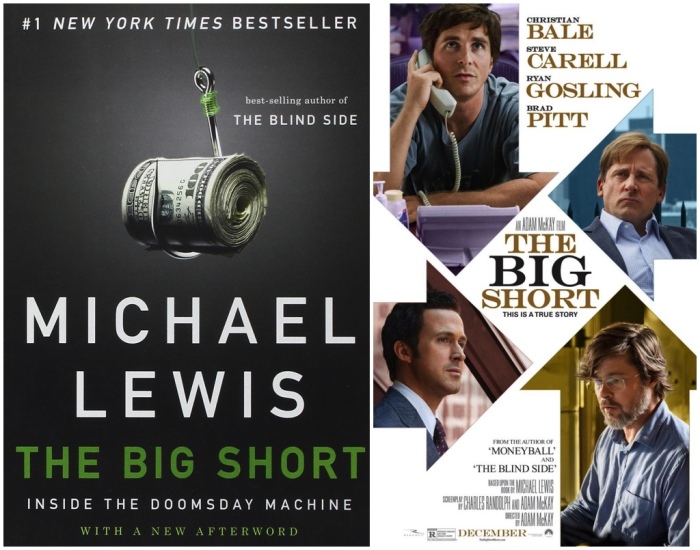Dave Eggers is a Titan within the contemporary lit industry. Chances are you've come across one of his introductions, or a magazine or collection he's edited. Eggers has been on my radar for awhile, never as an author, more as a literary force for organization, I'm especially partial to the Best American Non-Required Reading series that he edits. As far as a Heart Breaking Work of Staggering Genius is concerned, I could not have picked it up at a better time. It is a great work of autobiographical fiction that requires a lot of its reader, I don't know if I would have been up to it had I read this book say 2 years ago, or even 2 years from now.
That's because this book can be a work of staggering genius, but it definitely appeals to a niche type of reader. Eggers is writing himself as a character in his early twenties within his own, true story. This means that Eggers in tone, style, and characterization is a quintessential 20 year old in all their annoying and insistent duality. He is both arrogant and self-eviscerating, young at heart and jaded, sentimental and cold, entitled, "owed", attention seeking, but cripplingly self-conscious and undeserving. Eggers explores this range of 20 something identity in a way that makes this essential reading for any 20 year old who constantly thinks about what it means to be 20+, how truly formative these years can be. Eggers' story is truly full of heartbreak too; losing both parents, assuming guardianship and having to raise his little brother with a sense of normalcy. The reader watches Eggers struggle on two fronts: as a character in his own story trying to raise his little brother (7) responsibly while also trying to be a normal 23 year old with a life and as the author of his own story constantly questioning his right and ability to tell it. The constant battle painted with Eggers' calculated brush strokes gets at the heart of being young, requiring both an interest in the topic and an understanding of what it means.
And at 22 I wouldn't have gotten why Eggers was so impossibly annoying, arrogant, and constantly terrified of his life ending, but now, at 26, I see that Eggers is annoying because of his desire for positive reinforcement never reaped from his parents (whether this is true or not is open to interpretation but 22 year old Eggers' perception of it is definitely not), his arrogance is a mask to hide something much deeper down, and his constant fear of mortality is actually a fear of being forgotten. And there is a lot more here. Eggers keeps his writing interesting, spanning the events of his early 20's poetically, humorously, and offering a clear look into the depths of his insecurities. But so what kind of reader is going to like this book? One could be of any age, but being closer to 22 helps because one could remember their inner thoughts better the closer they are to that age. Either way, to appreciate AHWOSG it is required to be aware of who you most likely were when you were 20 - 25. You would have to remember the masks you wore in front of your friends and family but recognize that underneath you had no idea who you were or wanted to be, maybe you still don't. You'd have to acknowledge your fear of attention falling away from you, of never being great, the ever present fear that eyes are both on you and at risk of being off you. Then you'd have to imagine yourself in Eggers' situation; orphaned, raising a sibling as a son. This requires cognizance and making difficult realizations about yourself, if the reader does not meet these requirements they will not 'get' this novel.
One of the manifestations of not getting it, you will find if you peruse the Internet for people's opinions of this book, is a major criticism of tone. People will find it self-indulgent, far too referential, and irreverent to the reader. That's because it requires a closer look, it requires one to read the hilariously long acknowledgements section before the novel even starts. It features Eggers clear outline of the themes presented in this book (plus a drawing of a stapler), the irony here is, of course, that the close reader who would take the time to read the 15 page acknowledgements in the beginning is not the same reader who needs the themes spelled out to them. They likely already know that when Eggers calls his work "Staggering Genius" it is not real arrogance, but manufactured. In fact, everything in this book from the copyright page, to the table of contents, to the narrative style is manufactured to create a better sense of a nagging character telling the story as opposed to the author. The reader receives constant reminding that they are reading the thoughts of a manufactured narrator NOT the thoughts of Dave Eggers, author of a Heartbreaking Work of Staggering Genius.
The major reason I know, and you should know, that Eggers is not writing as Eggers aged 33 or whatever, is that he will often step into the narrative and take the place of a character to savagely cut down the way in which age 20 Eggers is telling the story. This is a truly great and wholly unique literary technique, somewhat meta but artfully worked in, not out of place. It usually starts with a casual conversation between Eggers and his little brother Toph (sometimes it's his ailing friend John, but mostly it's Toph) not unlike many other sections of the book, so it always comes as a hysterically funny surprise, making these moments some of the most memorable portions. Eggers will be telling Toph goodnight or about some idea he has for a magazine. Toph would start out responding as a 7 year old, but then, out of the blue, Toph will launch into a critical diatribe about a portion of the novel; "to be honest, what I see is less a problem with form, all that garbage, and more a problem of conscience...you struggle with guilt both Catholic and unique...your father being in AA was not to be spoken of, ever, while he was in and after he stopped attending. You never told even your closest friends about anything that happened inside that house. Now you alternately rebel against and embrace that kind of suppression". This is obviously not Toph, it is author Eggers entering the narrative to continue conversing with character Eggers, both winking at the reader to remind them of the distinction between author and narrator but also to close some gaps opened by the unreliable narration of character Eggers. It is Eggers breaking in to remind his reader that they are reading fiction, not biography. This happens maybe 4 or 5 times and it is ridiculously fun and smart. It is a shame it is often lost on his readership.
Again, reading this book as an aware 20 something is important. Coming face to face with your insecurities, trying to put your finger on what it is deep down that brings out the worst in you is an opportunity often only available to you at that age - not always, but I'd imagine doing it with kids would be hard and unworthy of your time. So delve into this book knowing what you're getting into, that at the end of the page you're reading fiction. And cut Eggers some slack, his work is genius after all.




